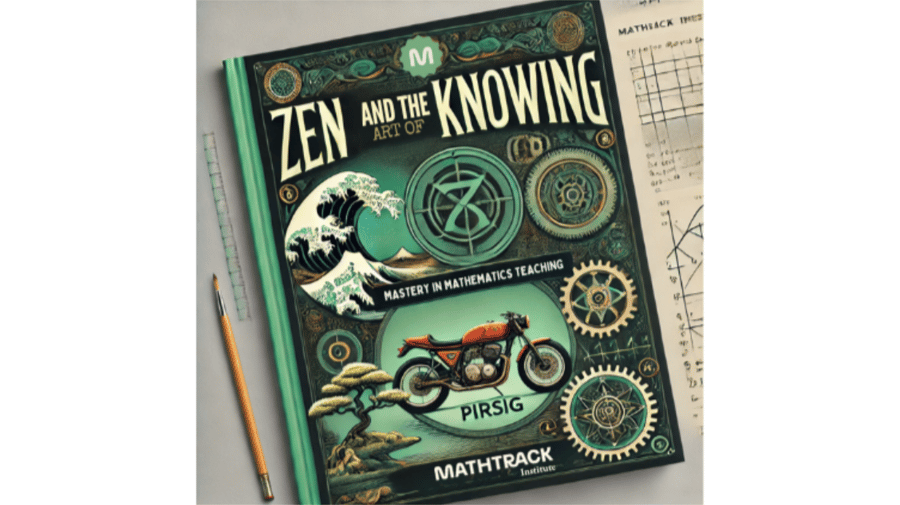As part of our discovery framework, I’ll often ask our district partners:
“If you didn’t have to worry about degrees or credentials, who would you hire to be an educator?”
I’ve asked this question countless times. Not once have I heard, “If credentials didn’t matter, I’d just hire anyone off the street.”
What I do hear—100% of the time—is something akin to:
“Someone committed to our students, our community, and the profession. Someone I trust.”
Just to be clear, I don't advocate for abolishing degrees and credentials from teaching - we in fact offer pathways to earn them through apprenticeship. Being shoulder deep in this work, we have first hand experience of the challenges districts face when adopting apprenticeships at the strategic level. So my aim here is to contribute toward a deeper understanding of the fundamental principles that underlie apprenticeship, in hopes it aids toward more effective integration for schools and districts.
The following question serves as a front door toward the principles I'm wanting to bring forward: Which is more critical from an employer perspective— an employee having a credential, or having the trust of students, colleagues, and the employer?
Apprenticeship as a Path to Trust
For ages, apprenticeship has been a structure for building trust—not just in an apprentice’s abilities, but in the respect exchanged between mentor and mentee.
When an apprentice honors their mentor’s experience, trust grows. Eventually, the mentor might even adopt some of the apprentice’s fresh perspectives, creating a cycle where knowledge is preserved and advanced. That’s the power of apprenticeship.
Lessons From Building
My path to K-12 education was nontraditional through industry mentorship, which is how I met Dr. Kevin Berkopes, with whom I eventually co-founded MathTrack Institute. Before education, I had spent over a decade in construction. I was a laborer, then a carpenter (apprentice level), and after studying the building sciences, a commercial general contractor. I worked closely with the trades, particularly mechanical, electrical, and plumbing trades. I was mentored. And I saw apprenticeships done well (and poorly).
In those companies, apprenticeship wasn’t just training and credentials. It was culture—a cultural approach to managing and advancing the knowledge within the organization.
Apprenticeship as a District Knowledge Strategy
I find it problematic that it is largely acceptable to tell districts the type of knowledge they need, after a minimal assessment of the knowledge they already have. I don’t see that in other industries like I have in education.
We’re finding some good collaborators, though—institutions that recognize professional development for college credit. That’s a great start toward recognizing knowledge already embedded in the district.
At its core, apprenticeship is a belief:
- Your organization already has valuable knowledge
- That knowledge lives in people and is largely tacit in nature
- The knowledge is evolved through interaction.
Apprenticeship is the structure that can enable this knowledge to be intentionally preserved, transferred, and advanced.
Districts already have informal apprenticeships happening—veteran teachers mentoring newer ones, instructional assistants learning from lead educators. What we do at MathTrack is add enabling codification to increase coherence in the interactions - so that knowledge co-creation becomes more intentional, strategic, and measurable.
Mentorship Craves Context
At MathTrack when we launched our first apprenticeship model in 2021, we didn’t initially have a vision for degrees and credentials. We were just trying to figure out what kind of on-the-job training could prepare novice educators to do the complex work of teaching. Our initial models fell short in many ways, but they provided the learning we needed to advance our cause.
One of our obvious failure points was mentorship. Because our apprenticeship model was largely uncodified, we self-performed the mentorship. We had seasoned educators doing the mentorship, so why did this fail? Ultimately, the problems the educators faced were situated in context, and we were outside the school context.
Knowledge is co-created in context. Mentorship removed from context becomes shallow. Polanyi wrote in The Tacit Dimension, “We know more than we can tell.” That’s what apprenticeship is meant to exchange: the knowledge we can’t fully articulate—the majority of what we know—and that we only know within context when we need to know it.
The Age of Apprenticeship…again
As “Grow Your Own” initiatives become table stakes as a district talent strategy, we’re finally seeing apprenticeship gain traction. That’s a good thing. However, it seems to be currently running the risk of over prioritizing the long term outputs, like credentials and certifications, and putting lower emphasis on the more fundamental principles that provide merit in the immediate sense.
An example of this overemphasis is starting these initiatives by backwards mapping from the degree and credential outcome. This is problematic as the types of constraints used in the process won't allow you to work down towards the actual apprenticeship context - you'll end up somewhere counter to the teacher's experience.
We're still learning, and will be for some time if not forever. I’ll continue to expand on some of the immediate and practical problems with adoption we’re uncovering with our district partners in future posts. Also some of the immediate value apprenticeships can create in the district.
What do you care about?
I plan to write more in the future about things we’re learning, doing Grow Your Own strategies with district partners, why decision-making challenges get these initiatives stuck, and how to unstick them. I’ll also expand on some of the points above.
If anything here resonates, or if there’s something you’d like to see explored further, email me: andrew@mathtrack.co. I'd love to hear what you think would be valuable to expand upon.
Subscribe to Our Newsletter

Zen and the Art of Knowing: Mastery in Mathematics Teaching

